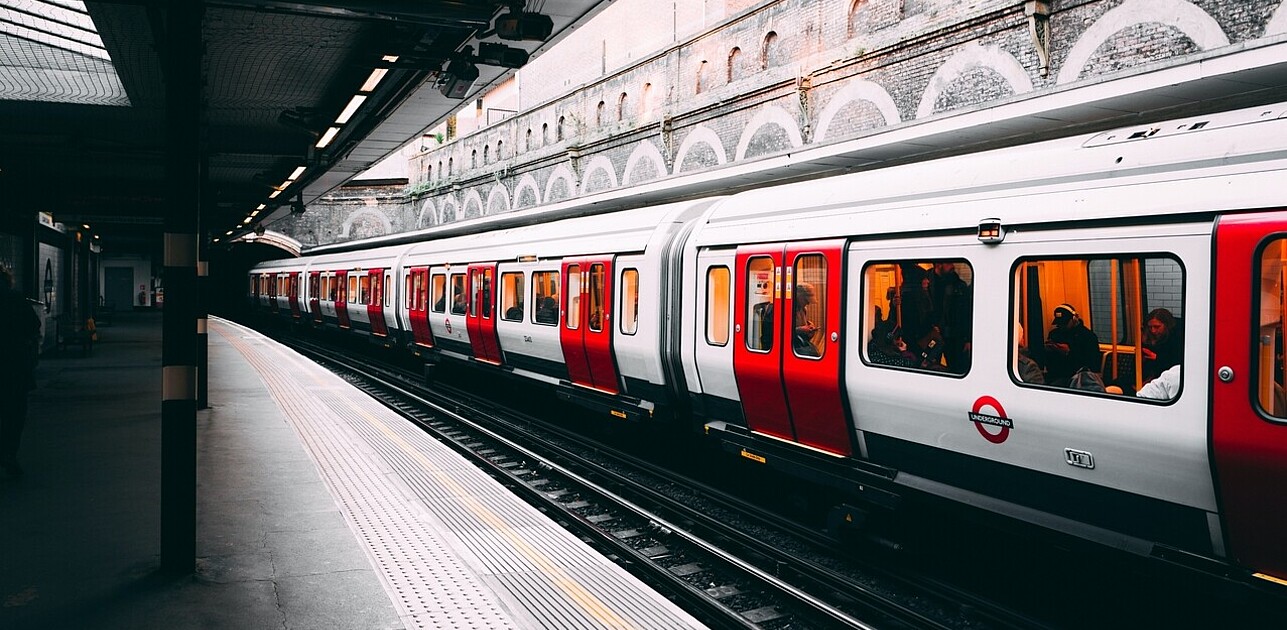

Video: Tuesday, 23 June 2015
Advising a one-size-fits-all ‘alternative route’ for all passengers when metros or trains are disrupted is no longer the only option. Automated fare collection systems such as the OV-chipkaart in the Netherlands and the Oyster card in London, as well as everyday technology such as apps on smart phones, can produce detailed and personalised customer journey information that can be used to create new travel plans for each passenger when there is a disruption in the network. This information has only recently become available to public transport operators, and it features in new research by PhD candidate Evelien van der Hurk of Rotterdam School of Management, Erasmus University (RSM) in close collaboration with Dutch railway operator NS.The research reveals that the usage of these data sources can give travellers a better experience during disruptions.
Millions of journeys are made by train, bus and metro every day. But disruptions happen regularly because of malfunctioning rolling stock or infrastructure, extreme weather conditions, and accidents. In her dissertation Passengers, Information, and Disruptions, Evelien van der Hurk shows that in these situations, using new information sources and supporting passengers by issuing personalised route advice can significantly improve the passenger experience.
Such improvements involve a complex system in which the service experienced is a result of the interaction between passengers and the logistics schedule, and from interactions between passengers themselves. So the delay experienced by any particular passenger depends on the logistics schedule and the routes chosen by other passengers also experiencing the disruption. For example, if passengers caught in a disruption can choose between two alternative routes, they might choose a route based on their expected arrival time. But when demand exceeds capacity on this route, passengers are unable to board the train; they experience an additional delay, and passengers already on that train crammed with extra travellers have a less pleasant journey.
Increasing capacity on the route isn’t always possible. What’s more, with the operator’s finite resources, increasing capacity on one route implies reducing the capacity of another route. Both the change in capacity assignment and the change in passenger flows could lead to new – and even more severe – shortages in capacity at other locations.
Van der Hurk shows that passenger service during disruptions can be improved by combining changes in the logistics schedule with personalised advice for passengers. New mathematical optimisation models calculate logistic adjustments to prevent bottlenecks where possible, while at the same time warning passengers of passengers of routes where bottlenecks are unavoidable.
Van der Hurk’s optimisation model focuses on issuing route advice that serves individual passengers, rather than advice that’s good for the passenger group as a whole. But in order to provide such advice, the system needs detailed information about demand. The author’s research also showed that this information can come from data on smart cards. Moreover, she also found that using anticipated passenger demand when planning shuttle bus services during disruptions can substantially improve passenger service. The operating cost is comparable, and can be even lower.
In practice, use of these research findings requires developing the models further, from proof-of-concept to software for professional use. It will require changes in culture and system for more computer-aided rescheduling, in addition to the current practice of manual rescheduling. This shift is currently taking place within Dutch railway operator NS. In the short term, results of this research illustrate the importance of the tools for direct communication with passengers NS has (e.g. the Reisplanner app), and encouraging further development and exploitation of these during disruptions.
Passengers travelling in public transport generate a detailed digital track record of their journey through automated fare collection systems and by carrying mobile devices. This information on passenger behaviour has only recently become available to public transport operators. This thesis addresses the question how this new information can be used to improve passenger service in case of disruptions in public transportation.
Major disruptions cause the current logistical schedule of the operator to be infeasible. Adjusting this schedule to the disruption is a complicated planning problem. Passengers will adjust their journeys to the new schedule, and may need to adjust their route choice due to the route choice of other passengers in case of capacity shortages. Therefore the passenger service results from a complex interaction between passengers themselves, and between passengers and the schedule.
This thesis proposes new models for improving passenger service in case of major disruptions by adjusting the schedule while anticipating passenger’s reactions, and also by supporting passengers during disruptions through the provision of route advice. This research is combined with a study on passenger behavior based on the new data sources. The models are evaluated using data and case studies of the passenger rail network of Netherlands Railways and the urban rail network of the Massachusetts Bay Transportation Authority. It was found that indeed this new information, together with the option to provide route advice to passengers, could significantly improve service during major disruptions.
Rotterdam School of Management, Erasmus University

This research is part of the Netherlands Science Foundation (NWO) project ‘Complexity in Public Transport’ and has been done in collaboration with MIT in Boston.
Van der Hurk has defended her PhD dissertation at Erasmus University Rotterdam on Thursday 18 June 2015 at 15:30 in the Forumzaal in the Van der Goot (M) Building. Her promoters are Prof. Leo Kroon and Prof. Peter Vervest and her co-promoter is Dr. G. Maroti (VU/NS). Other members of the Doctoral Committee are Dr. D. Huisman (NS), Dr. J. van Dalen and Prof. Rob Zuidwijk of RSM and Prof. N. Wilson (MIT), Prof. K. Nagel (TU Berlin) and Prof. O. Nielsen (DTU Copenhagen).


Science Communication and Media Officer

Corporate Communications & PR Manager
Rotterdam School of Management, Erasmus University (RSM) is one of Europe’s top-ranked business schools. RSM provides ground-breaking research and education furthering excellence in all aspects of management and is based in the international port city of Rotterdam – a vital nexus of business, logistics and trade. RSM’s primary focus is on developing business leaders with international careers who can become a force for positive change by carrying their innovative mindset into a sustainable future. Our first-class range of bachelor, master, MBA, PhD and executive programmes encourage them to become to become critical, creative, caring and collaborative thinkers and doers.
